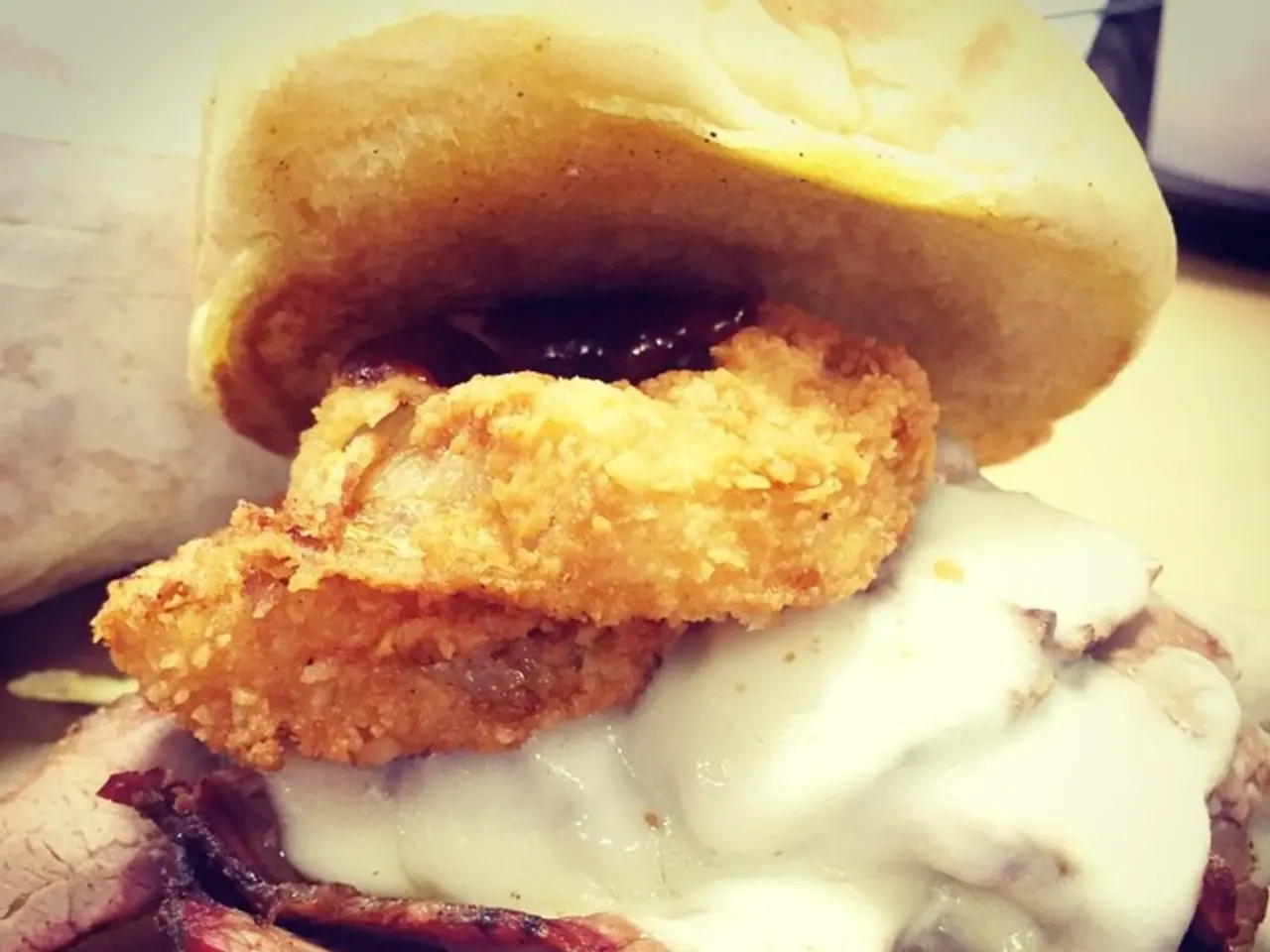Seven nutritious options for midnight munchies to explore
Healthy Late-Night Snacks: A Guide to Balanced Eating
Late-night snacking can have a significant impact on your health, potentially leading to weight gain, obesity, type 2 diabetes, metabolic syndrome, poor sleep quality, and heart disease. This is because eating late disrupts metabolism, pushing digestion into the sleep period and impairing various bodily functions [1][2][3][4].
However, occasional hunger pangs need not derail your health goals. Registered dietitians recommend choosing healthy, metabolism-supporting snacks that are nutrient-dense but low in calories and fat.
Protein-Rich Options
Eggs, a rich source of melatonin and protein, make for a suitable evening snack. A boiled egg with two oatcakes or egg and vegetable muffins can provide a balanced and satisfying snack [5]. Yogurt, another excellent source of calcium and tryptophan, both of which support better sleep, is another good choice. A small portion of low-fat Greek yogurt or cottage cheese can help curb hunger without adding too many calories [5].
Fibre-Rich Choices
Bananas, known for increasing melatonin production and aiding sleep, are a good source of fiber, vitamins, and minerals. A medium banana contains around 105 calories, making it an ideal light snack [6]. Oats, another source of melatonin, are rich in fiber, vitamins, and minerals. A 40g serving contains approximately 160 calories [7]. Opt for whole-grain crackers or carrot sticks for a fibre-rich, low-calorie snack.
Combining Protein and Fiber
For a snack that promotes fullness and stable blood sugar, consider pairing protein with fiber. For instance, a small apple with a spoonful of peanut butter or a handful of pistachios (the nut with the highest melatonin content among plant foods) can make for a satisfying and nutritious evening snack [5][8].
Timing is Key
It's also essential to stop eating at least 2-3 hours before bedtime to allow the body’s metabolism to enter a fasting state that facilitates fat burning overnight [2][3][4].
In conclusion, while avoiding late-night eating is ideal for metabolic health and weight control, choosing small, nutritious snacks if needed and maintaining a sufficient gap before sleep can help mitigate adverse effects.
[1] https://www.ncbi.nlm.nih.gov/pmc/articles/PMC2908334/ [2] https://www.ncbi.nlm.nih.gov/pmc/articles/PMC2670958/ [3] https://www.ncbi.nlm.nih.gov/pmc/articles/PMC3945755/ [4] https://www.ncbi.nlm.nih.gov/pmc/articles/PMC3677035/ [5] https://www.healthline.com/nutrition/foods-high-in-melatonin [6] https://www.healthline.com/nutrition/foods/bananas [7] https://www.healthline.com/nutrition/foods/oats [8] https://www.healthline.com/nutrition/foods/nuts-with-the-most-melatonin
- Paxlovid, a COVID-19 treatment, is not a recommended late-night snack, but a source of hope during these health-and-wellness times.
- Predictive models of sleep quality could benefit from considering late-night snacking habits as a contextual factor.
- Melatonin, a sleep hormone found in eggs and bananas, is known to aid sleep and bipolar disorder management, according to established science.
- Bipolar individuals should be mindful of their sleep patterns and food choices, particularly late-night snacks, to maintain depression management.
- The impact of anti-depressants, melatonin supplements, and other sleep aids on weight gain is an area of ongoing research in health-and-wellness and fitness-and-exercise circles.
- Snack choices can impact one's weight: regulations for foodandfoodbenefits might need to consider this when retargeting aid for obese or overweight persons.
- In HIV patients, careful monitoring of sleep patterns and weight gain is crucial, especially with sleep supplements and dietary considerations.
- Personas for health-and-lifestyle marketing can be divided into categories like "Fitness Fanatics," "Healthy Eaters," and "Sleep Optimizers," each with unique needs and interests regarding late-night snacks and nutrition.
- Considering the growing trend of Paleo, Keto, and Vegan diets, nutritionists might need to research snack options to cater to these healthy-diet preferences.
- Prep tips for late-night snacks could include preparing protein-rich egg recipes during the prep for dinner, ensuring a balanced meal even for those late-night hunger pangs.
- Adopting a consistent sleep schedule and practising good sleep hygiene reduces the likelihood of snacking due to insomnia or disturbed sleep.
- Wholesome and nutritious late-night snacks can contribute to overall health, promoting better sleep and curbing unhealthy weight gain.
- Incorporating fibre-rich snacks and healthy dietary choices into wellness routines supports holistic goals, from maintaining proper sleep quality to long-term fitness-and-exercise success.




